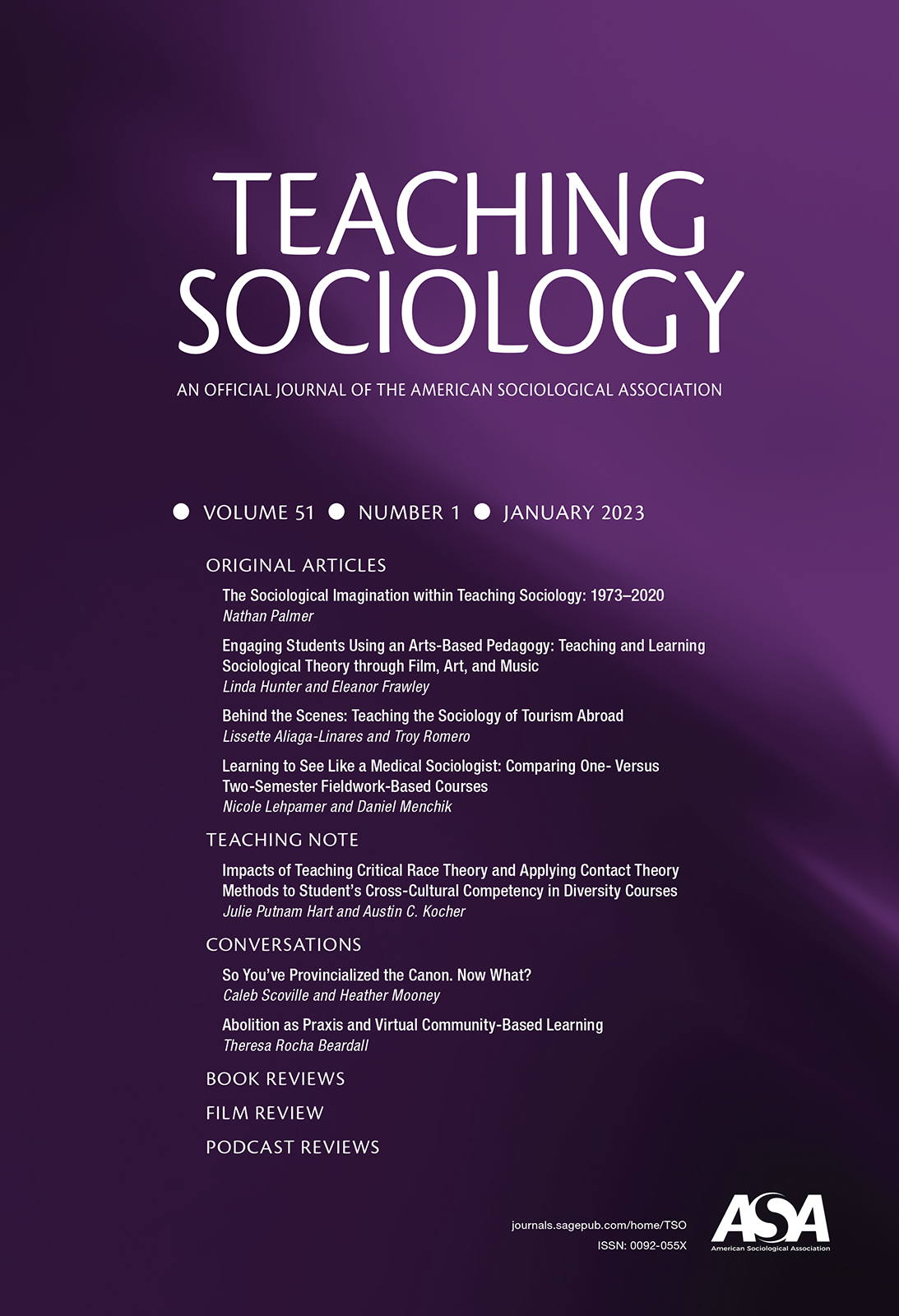
Contemporary Sociology
A Journal of ReviewsSociology (General)
Submit your manuscript today at https://mc.manuscriptcentral.com/contemporarysoc.
The American Sociological Association (ASA), founded in 1905, is a non-profit membership association dedicated to advancing sociology as a scientific discipline and profession serving the public good. With 12,000 members, ASA encompasses sociologists who are faculty members at colleges and universities, researchers, practitioners, and students. About 20 percent of the members work in government, business, or non-profit organizations. ASA hosts an annual meeting with more than 6,000 participants and publishes 14 professional journals and magazines.
As the national organization for sociologists, ASA, through its Executive Office, is well positioned to provide a unique set of services to its members and to promote the vitality, visibility, and diversity of the discipline. Working at the national and international levels, ASA aims to articulate policy and implement programs likely to have the broadest possible impact for sociology now and in the future.
 |
 |
 |
 |
 |
 |
 |
 |
 |
 |
 |
 |
 |
Contemporary Sociology publishes reviews and critical discussions of recent works in sociology and related disciplines that merit the attention of sociologists. Since not all sociological publications can be reviewed, a selection is made to reflect important trends and issues in the field.
| Yasemin Besen-Cassino | Montclair State University |
| Jimi Adams | University of Colorado-Denver |
| Robert M. Adelman | University at Buffalo, New York, USA |
| Babak Amini | University of the West of Scotland, UK |
| Amy L. Best | George Mason University, USA |
| Rebekah Burroway | Stony Brook University, New York, USA |
| Dan Cassino | Fairleigh Dickinson University, USA |
| Clayton Childress | University of Toronto |
| Dalton Conley | Princeton University, NJ, USA |
| B. Ethan M Coston | Virginia Commonwealth University |
| Amanda M. Czerniawski | Temple University, PA, USA |
| Sarah Damaske | Pennsylvania State University, USA |
| Rachel L. Einwohner | Purdue University, IN, USA |
| Colleen Eren | William Paterson University |
| Claude S. Fischer | University of California-Berkeley, USA |
| Kimberly Fox | Bridgewater State University |
| Debaleena Ghosh | Georgia Southwestern State University |
| Patrick Inglis | Centro de Investigación y Docencia Económicas, Mexico |
| Shirley A. Jackson | Portland State University |
| Shauntey James | Penn State Harrisburg |
| Katrina E. Kimport | UC San Francisco, USA |
| Amanda Koontz | University of Central Florida |
| Jen S. Lendrum | Aquinas College |
| Ophra Leyser-Whalen | The University of Texas at El Paso, USA |
| Jean Yen-chun Lin | California State University-East Bay |
| Roberta Maierhofer | University of Graz, Austria |
| Erynn Masi de Casanova | University of Cincinnati, USA |
| Joan Maya Mazelis | Rutgers University-Camden |
| Keesha Middlemass | Howard University, Washington DC, USA |
| Laura J. Miller | Brandeis University, USA |
| Shauna A. Morimoto | University of Arkansas, USA |
| Marcello Musto | York University (Canada) |
| Stephanie J. Nawyn | Michigan State University, USA |
| Boniface Noyongoyo | Marshall University |
| Merin Oleschuk | University of Illinois at Urbana-Champaign |
| Jessica Welburn Paige | RAND Corporation |
| Enrique S. Pumar | Santa Clara University |
| Smitha Radhakrishnan | Wellesley College, USA |
| Patrick Rafail | Tulane University |
| Rogelio Saenz | University of Texas-San Antonio |
| Karen Powell Sears | Denison University, USA |
| Tahseen Shams | University of Pennsylvania, USA |
| Hwa-Ji Shin | University of San Francisco |
| Stef M. Shuster | Michigan State University |
| Tad P. Skotnicki | University of North Carolina-Greensboro, USA |
| Catherine Richards Solomon | Quinnipiac University, USA |
| Dustin S. Stoltz | Lehigh University, USA |
| Cassandra White | Georgia State University, USA |
| Terrell James Antonio Winder | University of California-Santa Barbara |
| Bin Xu | Emory University |
Manuscript submission guidelines can be accessed on Sage Journals.